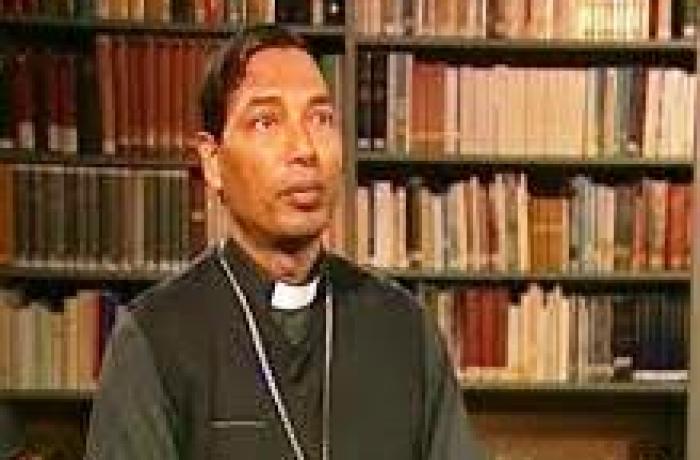Epidemic making things worse for Christian Dalits
For Bishop Sarat Chandra Nayak of Behrampur, “policies take into account the urban population, but the basic situation of the villages is never taken into consideration”. A priest was arrested for breaking lockdown regulations; he was later released.
“Our people are suffering a lot” from the coronavirus and the lockdown imposed by the authorities to fight the epidemic, said Bishop Sarat Chandra Nayak of Behrampur (pictured), speaking to AsiaNews.
A priest for example was arrested recently for allegedly violating lockdown regulations. “Father Devendra Nayak, a Catholic priest in Mohana, was taken into police custody for crossing the street inside a Catholic parish compound,” the prelate explained.
“He was going from the hostel to the refectory building for lunch when the police entered the compound and detained him for a few hours. The distance between the two buildings is only 30 yards and the priest was crossing the road inside the compound.”
“I lodged a complaint with the additional district magistrate against the detention of our priest,” said the Bishop. “The police entered the compound, despite claiming that they were outside.”
Bishop Nayak heads the Commission for Scheduled Castes and Other Backward Castes. “In every situation, Christian Dalits suffer more marginalisation,” he explained.
“Policies take into account the urban population, but the basic situation of villages is never taken into consideration. Political choices are insensitive to village reality. The catastrophic impact of the lockdown has caused enormous suffering to people in the villages. Christian Dalits suffer greater marginalisation.”
“In the Diocese of Behrampur we opened a quarantine centre in the parish of the Immaculate Conception in Aligonda, Gajapati district. Anyone returning to their villages from other states people can stay there for the quarantine period. In Odisha, the Church works closely with the government to keep people in our rural areas safe from the virus.”
“Our people are suffering, not only from the socio-economic situation, but also from the lack of sacraments. We are a sacramental people, and with this lockdown, we are in spiritual communion.
“Among our tribal people and Dalits, faith is communitarian and this is not possible due to the lockdown, which we are strictly observing. But our way of expressing faith is through a community. Community prayers are very important for our people, especially during Lent. The Via Crucis is a village tradition, as is Easter. The village is a community of believers, and this is missing.
“I am coordinating with the priests to find creative ways to be spiritually united even without sacramental communion. Our people miss the sacraments. After Easter, people in one village gathered to pray whilst keeping social distance, but the police came and told them to disperse.”
Despite everything, “our people’s faith is growing. In these pandemic times, families are praying more at home. Their homes have become domestic churches. People offer their sufferings and difficulties for the Church, the Holy Father and those who suffer.”






